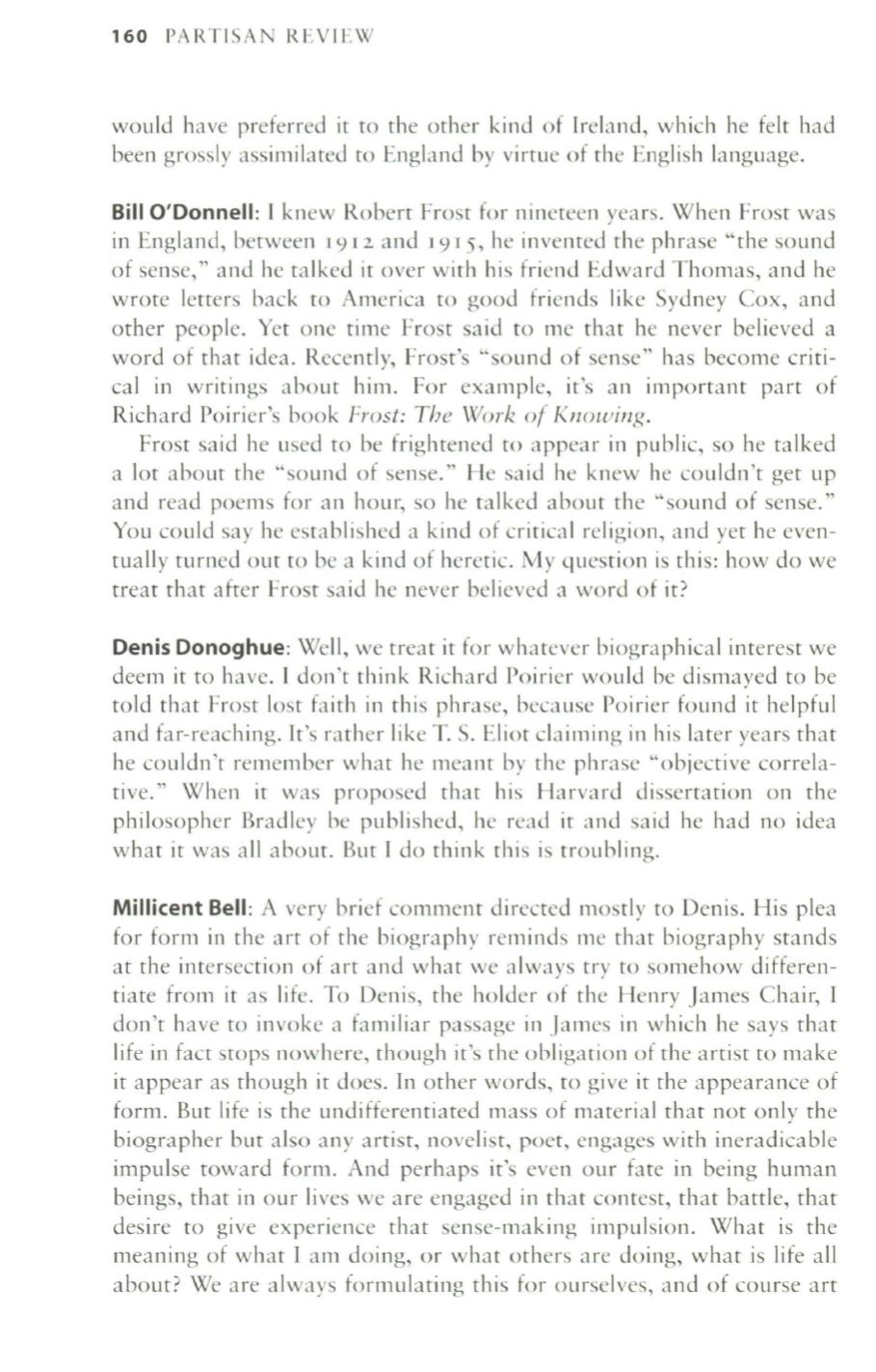
160
PARTISAN REVIEW
would have preferred it to the other kind of Ireland, which he felt had
been grossly assimilated to England by virtue of the English language.
Bill O'Donnell : I
knew Robert Frost for nineteen years. When Frost was
in England, between
1912
and191 5, he invented the phrase "the sound
of sense," and he talked it over with his friend Edward Thomas, and he
wrote letters back to America to good friends like Sydney Cox, and
other people. Yet one time Frost said to me that he never believed a
word of that idea. Recently, Frost's "sound of sense" has become criti–
cal in writings about him. For example, it's an important part of
Richard Poirier's book
Frost: The Work of Knowillg.
Frost said he used to be frightened
to
appear in public, so he talked
a lot about the "sound of sense." He said he knew he couldn't get up
and read poems for an hour, so he talked about the "sound of sense ."
You could say he established a kind of critical religion, and yet he even–
tually turned out to be a kind of heretic. My question is this: how do we
treat that after Frost said he never believed a word of it?
Denis Donoghue:
Well, we treat it for whatever biographical interest we
deem it to have. I don't think Richard Poirier would be dismayed to be
told that Frost lost faith in this phrase, because Poirier found it helpful
and far-reaching. It's rather like
T.
S. Eliot claiming in his later years that
he couldn't remember what he meant by the phrase "objective correla–
tive." When it was proposed that his Harvard dissertation on the
philosopher Bradley be published, he read it and said he had no idea
what it was all about. But I do think this is troubling.
Millicent Bell :
A very brief comment directed mostly to Denis. His plea
for form in the art of the biography reminds me that biography stands
at the intersection of art and what we always try to somehow differen–
tiate from it as life. To Denis, the holder of the Henry James Chair, I
don't have to invoke a familiar passage in James in which he says that
life in fact stops nowhere, though it's the obligation of the artist to make
it appear as though it does.
In
other words,
to
give it the appearance of
form. But life is the undifferentiated mass of material that not only the
biographer but also any anist, novelist, poet, engages with ineradicable
impulse toward form. And perhaps it's even our fate in being human
beings, that in our lives we are engaged in that contest, that battle, that
desire to give experience that sense-making impulsion . What is the
meaning of what I am doing, or what others are doing, what is life all
about? We are always formulating this for ourselves, and of course art


